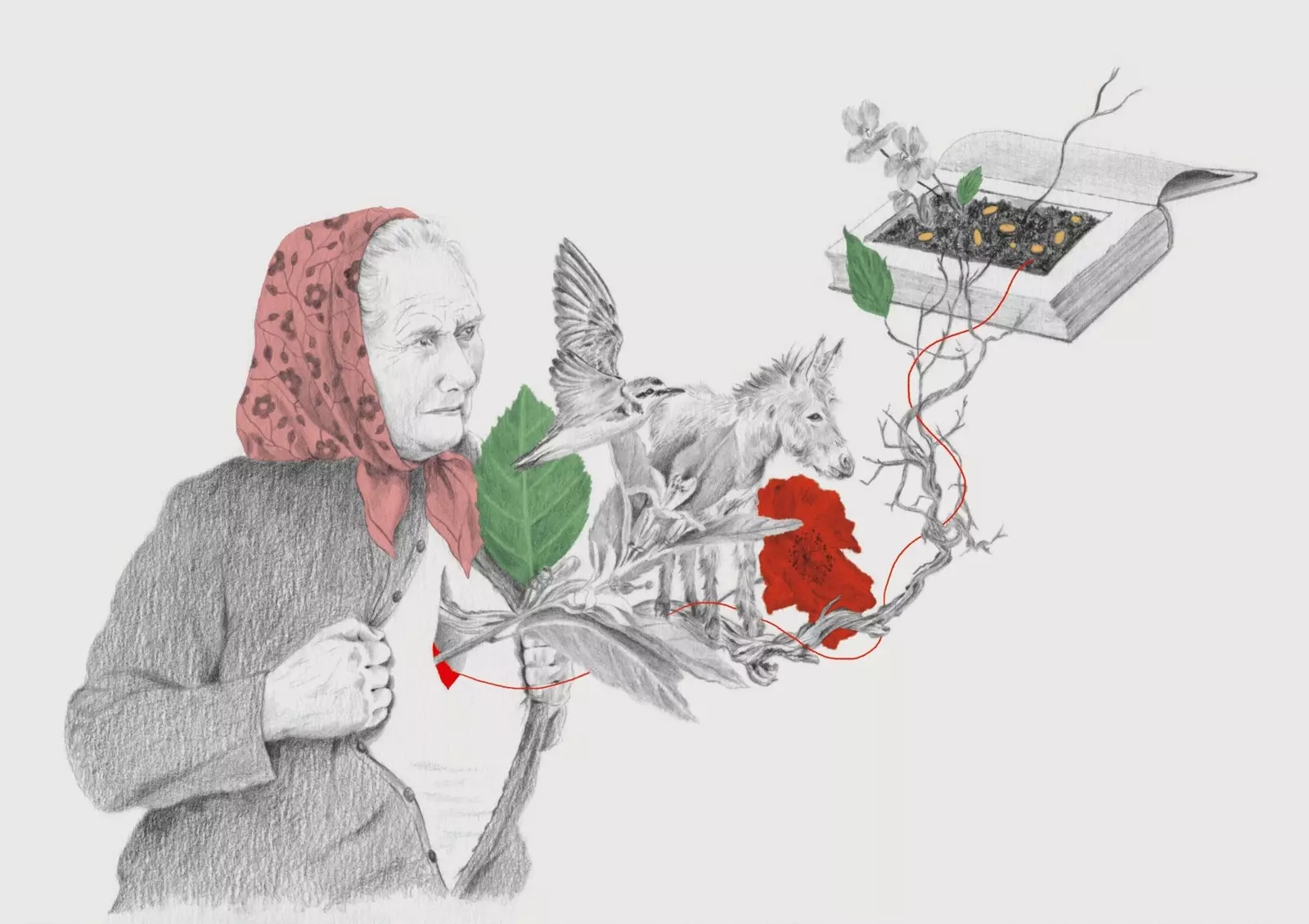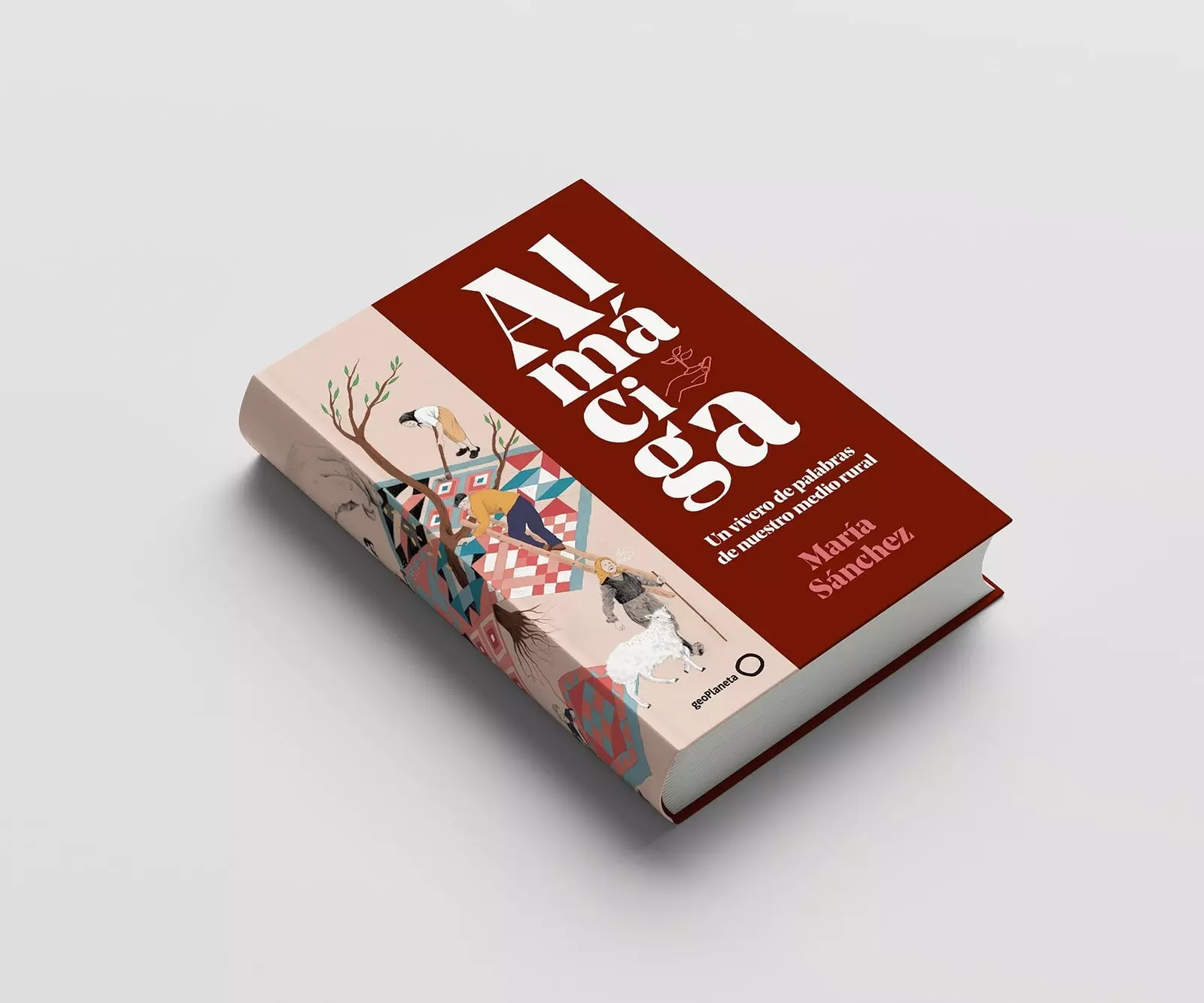
Almáciga, the book that recovers words from our rural world.
“Our rural environments are not only made of fields, stones, rivers, trees, houses, borders and gates . Our towns and villages continue to be a living portrait of those who inhabit them. We can never forget the word: the spoken, the silenced, the remembered, the silent, the buried, the forgotten, the sung…; the word about to be born or to become extinct”. This is the beginning of one of the notes of the seedbed of words of the veterinarian María Sanchéz , author of Field Notebook, Women's Land and now Almáciga (editorial geoPlaneta), her new book.
This glossary of words is born with the same one that bears the title, “almáciga”,** whose meaning comes from Arabic and means nursery**. She discovered it through her father one day and thought it would be the best word to represent a personal but also a community project. For all.
“A mastic, that place in the garden that is chosen for the seeds to germinate, sprout and gain strength . A place to grow and protect before definitively transplanting them to the orchard, ”she points out in her book. And from the northern mountains of Seville, María began to collect many of those words, those of her family so that they would not fall into disuse, and those of many other people who are related to the rural world that she claims.
“In* Tierra de mujeres*, my previous book, I already squander a few words and tell how I realize that working in the fields and at home with my family, there are words i don't know, my ear is used to them but i don't know what they mean . I mean, they were there, but I hadn't thought about them, hadn't noticed them. That's where the collection begins, so to speak, ”she stresses to Traveler.es.
In the summer of 2018 she was part of take a bath , a creation festival that takes place every summer in Baños de Río Tobía, a town in La Rioja. “That was the first official presentation of the project. I hung words on banners with the meaning on the back, in a field of alfalfa in bloom that the village goatherd gave me, since he didn't mow for us to use. Francisca Pageo made a beautiful collage and design for those banners**. I put a wooden table with a blank notebook so that whoever wanted could write the words that I didn't want them to get lost**”, she adds.
And from then on everything began to sprout and he began to collect words in presentations, talks and through social networks. Words that often do not appear in the Dictionary of the Royal Academy but that speak of our past and present as a society, hence it wants to be a nursery so as not to lose them.
That is why the project does not end in the book- It is alive. “Almáciga's website is open and anyone who wants can send their words so they don't get lost. Also little by little, there will be reports and texts to tell what lies beyond the word and its meaning: a way of life, a song, a trade, a link with the land, an accent…”.
THE FIRST WORDS OF THE NURSERY
boar (a group of birds smaller than a flock), tarama (branches or twigs), shell (the name of the barks and some fruits of flowers), zarzulla (this is how they say “hunger” in Castúo) or the same mastic are some of the first words that were part of this poetic glossary, which by the way brings some beautiful illustrations of Cristina Jimenez.
Then many more would come, some of them sound like poetry, like galuta , the name given to a baby deer before it is one year old; or oriscan , the last light of the afternoon; also ***txola***, the action of sowing by grabbing small seeds with the hands and throwing them to the ground; either seher , which is used to call the morning wind, which is believed to help plants grow.
“I like to serve as a speaker and I like that other narratives around rural areas are finally being taken into account , that go beyond simple and flat postcards where only bucolic scenarios or scenes full of hunger and illiteracy are contemplated”. For this reason, he invites us to go beyond the dichotomies between urban and rural environments, because, as he says, we need each other.
“Many times we do not value, care for or protect things because we do not know them. , we have not had the opportunity. And there are many words that we can use in cities, like sew (go for a walk to see if the garden and the animals need help or care). In times of pandemic and confinement, there have been many neighbors who have been sewing for your community."

Mastic of Maria Sanchez.
